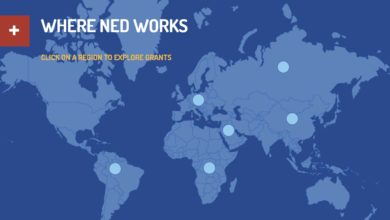Before half a million protesters in Mexico City’s historic Zócalo square on Saturday, July 8, presidential candidate Andrés Manuel López Obrador demanded a vote-by-vote recount of the 41 million ballots cast on July 2. He has called for a national march on July 12 to back that demand.
In the days before the presidential elections of July 2, López Obrador was running neck-and-neck with the right-wing National Action Party (PAN) candidate, Felipe Calderón. López Obrador ran on a coalition ticket of three parties, “For the Good of All (por el bien de todos)” —the Democratic Revolution Party (PRD), to which he belongs, the Party of Labor (PT), and Convergencia.
 |
In that partial vote review, the margin between the two candidates was narrowed, bolstering the belief by Calderón’s opponents that a complete recount would vindicate López Obrador.
The IFE says that out of 41 million votes cast, the razor-thin difference found in favor of Calderón, was some 244,000 votes, or 0.6 percent of the total votes cast. In the final tally, Calderón received 35.89 percent of the vote, López Obrador got 35.82 percent, Institutional Revolution Party (PRI) candidate Roberto Madrazo garnered 22.26 percent, and other, smaller parties accounted for the rest.
López Obrador is demanding that the Federal Electoral Tribunal, TEPJF, the special court set up for election appeals, order a full recount. He has also promised to go to Mexico’s Supreme Court.
The TEPJF tribunal has until September 6 to make its final decision on the election.
A repeat of 1988?
The fight that has broken out is reminiscent of the struggle in 1988. That year, Cuauhtémoc Cárdenas challenged the longstanding PRI as candidate of a new coalition, the National Democratic Front, which later became the PRD.
Since 1929, the PRI’s political machine had won every presidential election. But the economic crisis following Mexico’s debt default of 1982 and popular discontent with the PRI’s corruption and political monopoly led to an unprecedented opportunity for a new challenger in 1988.
Cárdenas’ campaign became massively popular, especially among the working class and poorest sectors of the country. As son of Lázaro Cárdenas, the president who nationalized much of Mexico’s wealth, instituted land reform, and took on the foreign corporations in the 1930s, Cuauhtémoc won the allegiance of the workers and poor who remember his father’s legacy.
It was widely expected that he would win.
When the 1988 official declaration favoring the PRI candidate, Carlos Salinas de Gortari, was announced, it was denounced as highly suspicious. In the midst of tallying votes, the election computer system shut down due to a supposed glitch. When it came back up two days later, Salinas de Gortari was declared the winner, but with only 50.7 percent of the vote.
From 1988-1994 Salinas presided over the massive privatization of Mexico’s national resources and industries, and the signing of the free-trade NAFTA agreement. NAFTA has proved disastrous for millions of Mexican farmers and workers.
Salinas is remembered for having sold the country’s wealth to foreign corporations and wealthy Mexican capitalists.
However, despite overwhelming anger about Salinas’ victory in the days following that election, Cárdenas did not heed the demands of the masses, who were ready to vindicate their stolen victory through struggle.
Hundreds of thousands of people came to the Zócalo—then as now—but Cárdenas let them down, speaking for barely 20 minutes, to simply say that his coalition would oppose electoral fraud until the next election.
The people’s palpable will to fight was suppressed by Cárdenas’ surrender in the capitalist electoral arena. More than protesting electoral fraud, the people who rallied by the hundreds of thousands in 1988 were demanding economic justice and a real change for the better.
Capitalist candidates disappoint workers
Then as now, the question of the elections obscures the deeper issue—the capitalist economic crisis facing tens of millions of Mexicans struggling to survive. More than six million Mexican workers have left their country to seek work in the United States since 1994. There they face repressive U.S. legislation, deportations, and fascist anti-immigrant groups.
Why then, with more than 60 percent of the population in poverty, is the outcome so close between the liberal candidate, who was seen as a hope for the poor and oppressed, and the PAN right-wing candidate?
There are several reasons. López Obrador moderated his message as the campaign progressed to appeal to the capitalist class. He was afraid to appear anti-big-business, especially after charges from Calderón that López Obrador would follow policies similar to those of Venezuela’s Hugo Chávez.
Lopez’s moderation cost him the enthusiastic backing of many of the most oppressed, who viewed him as impossibly trying to please both rich and poor. While a majority of workers and peasants backed López Obrador, the Zapatista National Liberation Army (EZLN) and other revolutionary forces did not support his campaign. The EZLN and their “Other Campaign (la otra campaña)” denounced all the candidates as maintaining the capitalist status quo and called for the overthrow of the present government and system.
As a sign of his continued road of moderation, when López this past Saturday spoke to the crowds, he warned people not to carry out blockades of highways, a common tactic of campesino and workers’ groups who oppose unjust government policies. Audible disappointment was voiced by the protesters.
Lopez is only now relying on the masses to mobilize, instead of trying to form a mass movement capable of fighting for real change.
One other main factor was scare tactics and negative campaign ads employed by Calderón. They were directed by U.S. right-wing campaign strategists.
It is interesting to note that Mexico’s northern states, 16 in total, favored Calderón. Traditionally the north, the industrial center and more closely tied to the U.S. economy, has been more pro-PAN. The southern 16 states, plus Mexico City, the poorest and more rural regions with a history of leftist combativeness, went to López Obrador.
The PRD tends to be more progressive in its political agenda than the other major parties, but it remains very much within the confines of capitalism and does not advocate a change in the system. The right-wing Calderón aims to privatize every remaining nationalized industry, especially petroleum. His predecessor, Vicente Fox, reversed Mexico’s traditional stance respecting other countries’ self-determination. Fox openly expressed hostility to Cuba and Venezuela.
The coming days will be crucial, starting with the July 12 mass mobilization. Will López Obrador endorse the will of the oppressed and push the struggle further, independent of the IFE or TEPJF’s decision? Will the Zapatista struggle-oriented perspective gain more momentum? We will continue to monitor the situation as it unfolds.





